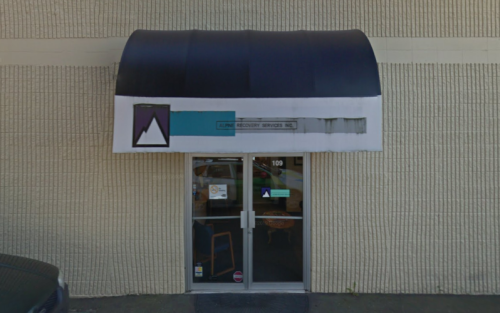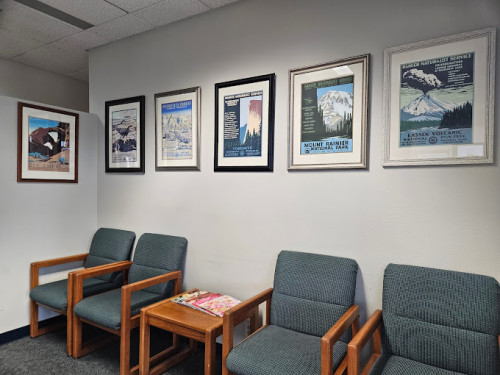



Alpine Recovery
Treatment Focus
This center primarily treats substance use disorders, helping you stabilize, create relapse-prevention plans, and connect to compassionate support.
Primary Level of Care
Outpatient treatment offers flexible therapeutic and medical care without the need to stay overnight in a hospital or inpatient facility. Some centers offer intensive outpatient program (IOP), which falls between inpatient care and traditional outpatient service.
This provider hasn't verified their profile's information. Are you the owner of this center? Claim your listing to better manage your presence on Recovery.com.
Treatment Focus
This center primarily treats substance use disorders, helping you stabilize, create relapse-prevention plans, and connect to compassionate support.
Primary Level of Care
Outpatient treatment offers flexible therapeutic and medical care without the need to stay overnight in a hospital or inpatient facility. Some centers offer intensive outpatient program (IOP), which falls between inpatient care and traditional outpatient service.
Provider's Policy
If you have questions about our services, accepted forms of insurance, our facility, or our staff, please feel free to contact us during normal business hours by phone.
Alpine Recovery
Alpine Recovery
About Alpine Recovery
Alpine Recovery Services is a licensed chemical dependency treatment facility, providing high-quality and individualized addiction treatment since 1992. Clients participate in an initial comprehensive assessment with experienced and compassionate professionals to determine the best course of treatment. Based on the results, clients can continue into one of their diverse outpatient programs, or receive referrals for treatment that is better suited for their needs.
Reclaiming Lives
Treatment providers at Alpine work to help their clients reclaim their lives through recovery, with personally tailored treatment plans and a number of outpatient programs that vary in intensity. A partial hospitalization program (PHP) offers their most intensive care, ideal for individuals struggling with moderate to severe substance misuse who do not need 24-hour care. PHP consists of 20 or more hours in treatment per week, typically over 4-5 days depending on individual needs. The intensive outpatient program (IOP) is a 9-12 week program, focusing on addiction education and life skills development, in a group therapeutic setting covering topics such as parenting in recovery, assertiveness training, denial and acceptance, living sober and more. They have a weekly family program on Wednesday's for clients in IOP. Individual therapy is also provided to clients in addition to their group and family therapy.
Ongoing Support
Additionally, Alpine provides long-term and ongoing support as individuals reintegrate into a sober lifestyle. A 26-week relapse awareness program helps individuals challenge themselves to examine behaviors and develop coping skills. Led by experienced addiction counselors, clients are assisted in their ongoing recovery with lectures, workbook assignments, process groups, and real-life application of learned skills. The relapse awareness program is ideal for individuals in recovery who have had a recent relapse or may currenty be at risk of one.
A 6-12 month program called Positive Choices provides structure and guidance focused on making informed decisions and establishing the foundation for positive lifestyle changes.
Clients who have successfully completed an outpatient program are offered continued support through a 26 week aftercare program, deeply rooted in the principles of 12 Step recovery and providing tips for organizing 5 core areas of life in recovery: stress, nutrition, sleep, physical activity and finance management.
Recovery for the Family
A robust family program offers 9 flexibly scheduled sessions once per week, offering support to family and loved ones of clients in the program. The family program covers topics such as addiction education, family dynamics, codependency, communication, assertiveness, enabling, family relationships and more.
Center Overview
Treatment Focus
This center primarily treats substance use disorders, helping you stabilize, create relapse-prevention plans, and connect to compassionate support.
CARF Accredited
CARF stands for the Commission on Accreditation of Rehabilitation Facilities. It's an independent, non-profit organization that provides accreditation services for a variety of healthcare services. To be accredited means that the program meets their standards for quality, effectiveness, and person-centered care.
Insurance Accepted
Cash Pay Rates
Estimated Cash Pay Rate
Center pricing can vary based on program and length of stay. Contact the center for more information. Recovery.com strives for price transparency so you can make an informed decision.
Levels of Care







Your Care Options
Specializations
Drug Addiction
Drug addiction is the excessive and repetitive use of substances, despite harmful consequences to a person's life, health, and relationships.
Family Involvement
Providers involve family in the treatment of their loved one through family therapy, visits, or both–because addiction is a family disease.
Who We Treat
Veterans
Patients who completed active military duty receive specialized treatment focused on trauma, grief, loss, and finding a new work-life balance.
Men and Women
Men and women attend treatment for addiction in a co-ed setting, going to therapy groups together to share experiences, struggles, and successes.
Approaches
Evidence-Based
A combination of scientifically rooted therapies and treatments make up evidence-based care, defined by their measured and proven results.
Family Involvement
Providers involve family in the treatment of their loved one through family therapy, visits, or both–because addiction is a family disease.
Therapies
1-on-1 Counseling
Patient and therapist meet 1-on-1 to work through difficult emotions and behavioral challenges in a personal, private setting.
Family Therapy
Family therapy addresses group dynamics within a family system, with a focus on improving communication and interrupting unhealthy relationship patterns.
Twelve Step Facilitation
12-Step groups offer a framework for addiction recovery. Members commit to a higher power, recognize their issues, and support each other in the healing process.
Psychoeducation
This method combines treatment with education, teaching patients about different paths toward recovery. This empowers them to make more effective decisions.
Life Skills
Teaching life skills like cooking, cleaning, clear communication, and even basic math provides a strong foundation for continued recovery.
Relapse Prevention Counseling
Relapse prevention counselors teach patients to recognize the signs of relapse and reduce their risk.
Substances We Treat
Cocaine
Cocaine is a stimulant with euphoric effects. Agitation, muscle ticks, psychosis, and heart issues are common symptoms of cocaine abuse.
Prescription Drugs
It's possible to abuse any drug, even prescribed ones. If you crave a medication, or regularly take it more than directed, you may have an addiction.
Benzodiazepines
Benzodiazepines are prescribed to treat anxiety and sleep issues. They are highly habit forming, and their abuse can cause mood changes and poor judgement.
Ecstasy
Ecstasy is a stimulant that causes intense euphoria and heightened awareness. Abuse of this drug can trigger depression, insomnia, and memory problems.
Psychedelics
Hallucinogenic drugs—like LSD—cause euphoria and increased sensory experiences. When abused, they can lead to depression and psychosis.
Drug Addiction
Drug addiction is the excessive and repetitive use of substances, despite harmful consequences to a person's life, health, and relationships.
Heroin
Heroin is a highly addictive and illegal opioid. It can cause insomnia, collapsed veins, heart issues, and additional mental health issues.
Synthetic Drugs
Synthetic drugs are made in a lab, unlike plant-based drugs like mushrooms. Most synthetic drugs are either stimulants or synthetic cannabinoids.
Methamphetamine
Methamphetamine, or meth, increases energy, agitation, and paranoia. Long-term use can result in severe physical and mental health issues.





